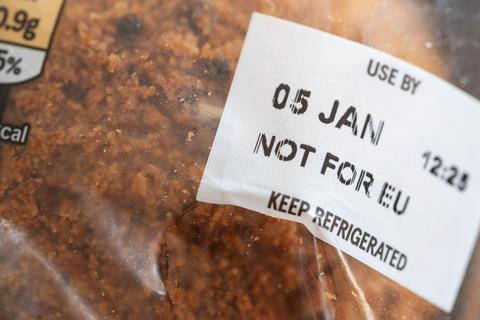
New post-Brexit checks on food and drink shipments to retailers in Northern Ireland are already hitting availability, supermarket chiefs have warned.
The government’s decision to implement the checks – despite the EU ‘reset deal’ in May – is causing frustration among retailers, The Grocer understands.
The Windsor Framework was first agreed in February 2023, to restore the smooth flow of trade between Great Britain and Northern Ireland. The framework’s third and final phase of checks came into force on 1 July – despite the UK and EU signing a ‘reset’ deal in May, which included a new sanitary and phytosanitary (SPS) agreement.
The checks require additional ‘Not for EU’ labelling on a slew of food and drink products, from packed fruit and veg to fish, eggs and all chilled and frozen composite products, such as quiches, pizzas, pasta sauces and chilled soups.
Products not carrying the labels are required to go through the framework’s ‘Red Lane’ – designed for GB goods heading to Ireland and/or the rest of the EU.
But just over three weeks after the introduction of beefed-up checks, the added bureaucracy is hitting availability, retailers warned this week.
The Grocer understands concerns were voiced in a meeting with Defra officials and minister Baroness Sue Hayman. Delegates argued the checks were “leading to reduced availability of some SKUs”, despite phase three of the Windsor Framework being “specifically framed to prevent that”.
Businesses had been given “very little time to adapt” to the labelling requirements, supermarkets warned, according to a source with knowledge of the meeting.
As a result, some retailers in Northern Ireland were paring back the number of lines of some products, another source suggested, for example by reducing choice by cutting the number of pack sizes, for products that were less profitable.
Read more: The Windsor Framework isn’t delivering for Great Britain-Northern Ireland trade. And it’s about to get worse
“Some retailers are struggling with the paperwork, and one of the big frustrations is that this bureaucracy is scheduled to be decommissioned when the EU SPS deal kicks in,” a third source told The Grocer.
“We ultimately need synergy on both sides – with lorries filled up to go to NI and back to GB, to ensure trade flows smoothly,” they added. “As a consumer, I’m already seeing businesses refuse to deliver to NI due to this bureaucracy.”
These concerns echo those of M&S CEO Stuart Machin last month, who described the rollout of the checks as “bureaucratic madness”.
At the time, the Cabinet Office told The Grocer that Defra had published “comprehensive guidance on gov.uk to support businesses in interpreting the legislation and understanding the extent to which their goods might need to be labelled”.
“When implemented, agreements we secured at the UK-EU summit will reduce the need for this labelling and make it easier to move goods between the UK and Europe,” it added.
However, industry insiders have suggested implementation could take until 2027, given the amount of work required to tackle regulatory divergence since the UK’s official exit from the EU single market at the turn of 2021.
Defra this week told The Grocer that faithful implementation of the Windsor Framework was “essential if we are to secure the benefits that an SPS agreement with the EU will bring”.
It expected the need for businesses to label goods ‘not for EU’ to “diminish significantly as a result of the future arrangements under the UK-EU SPS Agreement. However, achieving these benefits relies on the UK being a reliable partner, which delivers on its existing commitments”.
While the overwhelming majority of goods were still available to NI consumers, it added it was “aware of reports that there has been disruption to the supply of a small proportion of products. We are monitoring the situation closely”.
A spokesperson added: “Defra continues to work closely with businesses across the United Kingdom to support them with the changes, and alternative routes to market are being explored to ensure that any disruption to supply chains is only temporary where possible.”







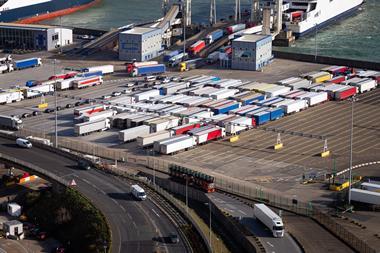
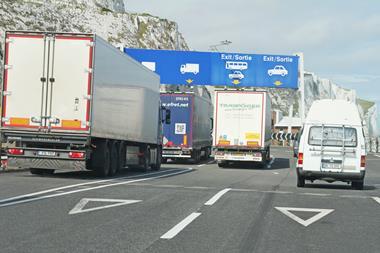
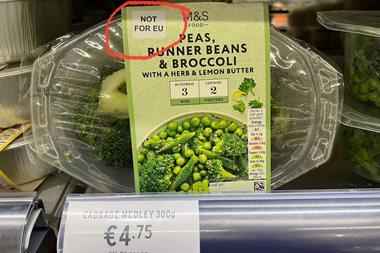

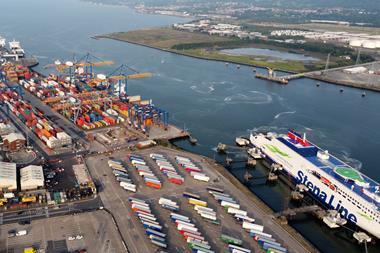
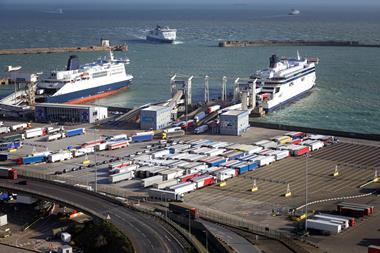






No comments yet